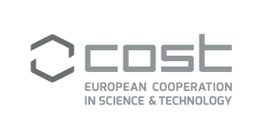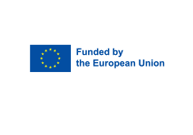PI E. Davioud-Charvet,
Strasbourg University is an innovative university and pioneer in many fields with strong international recognition. It is the 1st European University for its impact on innovation* in chemistry in the European Union, and the only French university in the top 50 in chemistry (2022 Shanghai ranking).
*Ranked before Harvard, CalTech, Yale, Cambridge and Oxford by the 2017 Nature Index Innovation
The hosting lab in Strasbourg, E. Davioud-Charvet, UMR7042 CNRS-Unistra) has pioneered the design and synthesis of redox-cyclers, and the understanding of their mechanism of action via cascades of redox reactions inducing reactive oxygen species (ROS). This work led to the discovery of the antimalarial lead 3-benzyl-menadione (bMD), called plasmodione, affecting the redox equilibrium of P. falciparum-infected red blood cells. The rationale of this research is based on the interplay of redox cascades, involved in drug metabolism and hemoglobin catabolism, leading to the specific release of ROS and the death of the parasites. The oxidative stress induced by plasmodione mimics the natural and partial resistance of glucose-6-phosphate dehydrogenase (G6PDH)-deficient individuals against severe malaria.
The present projects aimed at i) developing innovative (bio)organic & medicinal redox chemistry of the bMD scaffold as new chemotype with cross-antiparasitic activities to contribute to the development of antimalarial, anti-Chagas, and antischistosomal drugs; ii) deciphering the modes of action (MoA) of the lead bMDs by the design of chemical tools for bioimaging and drug activity-based protein profiling (ABPP).
---------------------------
The hosting lab research activities mainly focus on the MedChem development of redox-active drugs toward parasites (P. falciparum, T. cruzi, S. mansoni) and the elucidation of their modes of actions through physico-(bio)chemical characterization of redox-active systems of interest (physico-electrochemical expertise based on experience with complementary analytical methods such as absorption and emission spectrophotometry, fast kinetic methods, electrochemistry, ESI-MS and potentiometry, enzymology). In addition, the lab has free access to the core facilities of the proteomics platform (LSMBO, IPHC, Strasbourg) for MS analysis of protein mixtures and full proteomes. This platform (ground floor) is located in the same building as the hosting lab (1st floor), making the exchanges and the experimental work very easy. Furthermore, the proteomics platform (LSMBO, IPHC, Strasbourg) has a huge experience in proteomics analysis, in the methods, and a long-lasting experience with P. falciparum proteins2 gathered in the frame of the collaboration with Prof. M. Lanzer (Heidelberg, Germany).
COST (European Cooperation in Science and Technology) is a funding agency for research and innovation networks. The COST ACTIONS help connect research initiatives across Europe and enable scientists to grow their ideas by sharing them with their peers. This boosts their research, career and innovation.
One Health drugs against parasitic vector borne diseases in Europe and beyond
OneHealthdrugs
24/10/2022
23/10/2026
27/05/2022
Download file
Maria Paola Costi
Anabela Cordeiro da Silva
Maria Cristina Notarsanto
Maria Esposito and Laura Leonardi


